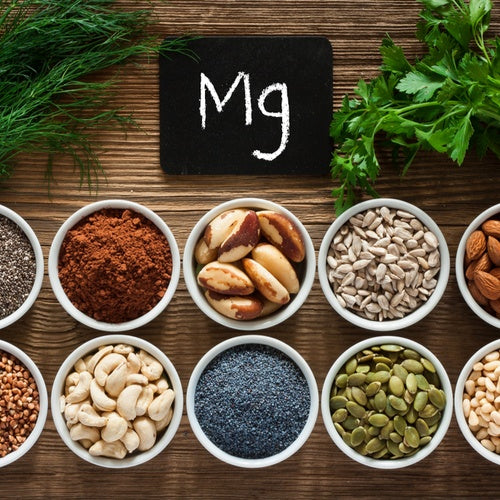Introduction
Probiotics are all the rage at the moment as recent research has shown them to be highly beneficial for overall wellbeing. But there is so much controversy out there on probiotics that it is easy to become confused and overwhelmed.
It is better to get broad spectrum or high-dose single strain?
What’s the best strain to get?
Are probiotic foods or probiotic supplements better?
These are just some of the questions you may have when it comes to probiotics. But before we begin to answer them, let’s start with what they actually are.
What Are Probiotics?
Probiotics are the good guys in your gut. They are the beneficial microorganisms that enhance the health of our digestive tract and in turn, improve our overall wellbeing. They can lead to a wide range of health benefits including improved skin, mood, immune system, blood sugar control, balanced hormones and the list goes on.
A probiotic can be found from a fermented food source such as sauerkraut, kombucha, yoghurt or kefir or a specific supplement that contains bacteria that are helpful to your digestive tract.

The Microbiome
Your digestive tract contains over 100 trillion bacteria and other microorganisms such as yeast, parasites and fungi and most of these reside in the large intestine. The bacteria are collectively known as your microbiome.
In the same way that you have a unique fingerprint, you also have your own unique microbiome. All these different microorganisms play different roles to keep your health in check. The bacteria in your gut can be categorised in three different groups:
1. Beneficial bacteria
Food sensitivities are the main cause of symptoms associated with leaky gut. Food sensitivities or intolerances are considered one of the fastest growing chronic diseases which affects more than 20% of the population in industrialised countries. Exposure to food antigens can trigger rapid gut inflammation leading to barrier hyperpermeability, sometimes termed ‘leaky gut’. With food sensitivities, symptom onset is often delayed by many hours and an individual is usually reactive to a number of different foods.
2. Opportunistic bacteria
These bacteria may be harmful depending on their levels. They are not harmful to our health when they are low in number but can become detrimental when they increase and the number of beneficial bacteria decrease. They can then start to affect our immune system, create inflammation and generally decrease our quality of life. Examples of opportunistic bacteria include Klebsiella and Citrobacter.
3. Pathogenic bacteria
These are the bad guys, the bacteria that can cause a wide range of health problems and not only relating to the gastrointestinal system. These are the ones we want to eliminate. Examples of pathogenic bacteria include Salmonella and Campylobacter.
As different probiotics have different actions in the body, it is important to make sure you have the right balance of good guys and to use a strain that is specific for your individual needs. The right strain will help replenish and grow your own unique strains of bacteria that are living inside you. Take note, next time you’re looking for a good probiotic to buy, that a good quality one will always include the strain it contains.
What Do Probiotics Do?
Depending on the strain, probiotics can help in many areas including:
- Regulating bowel transit time to prevent constipation and diarrhoea
- Reducing inflammation in the gut
- Healing colon tissue and strengthening the intestinal barrier to prevent leaky gut
- Competing with the bad pathogenic bacteria for space in the digestive tract
- Binding to viruses such as rota virus and reduce their effects
- Decreasing the effects of bacterial toxins such as Clostridium difficile A and B
- Dampening the overactivity of the immune system in conditions such as eczema, allergic rhinitis and food allergies

How Do Probiotics Work?
While we have known for a long time that probiotics populate the gut with good bacteria, they do so much more than that. They act like policeman within the gut, restoring order and peace amongst the “citizens” of the microbiota. They keep the disease-promoting bacteria at minimal levels and promote the growth of beneficial bacteria. The more diversity they see in the community of microorganisms, the happier they’re going to be.
When Can They Help?
Surprisingly, probiotics are used for not only treating gut-related conditions. While it is helpful in treating gastroenteritis, infantile colic, irritable bowel syndrome, reflux, diarrhoea, constipation and inflammatory bowel disease, it can also support a myriad of conditions not relating to the gastrointestinal tract. These include type 2 diabetes, obesity, cardiovascular disease, anxiety, depression, endometriosis, eczema and autoimmune conditions such as psoriasis, fibromyalgia and lupus to name a few.
What Are Some of the Different Strains Used For?
-
Lactobacillus rhamnosus
Lactobacillus rhamnosus GG (LGG) is one of the most widely used probiotic strains and the most extensively researched. It has the ability to enhance the immune system and proven to be specifically useful in reducing the occurrence and symptoms of allergies, eczema and other atopic conditions. LGG helps to heal the gut barrier and may also help to decrease the risk of digestive upsets in both adults and children, including Irritable Bowel Syndrome. If you are struck by a nasty bug, it can shorten the time you experience diarrhoea. This is one of the best all-rounder probiotic strains for general digestive health.
-
Saccharomyces cerevisiae (boulardii) SB
SB is a probiotic-acting yeast and is most well-known for its role in the prevention and treatment of traveller’s diarrhoea so it’s a great one to take on holiday. It has the ability to regulate the balance in your gut by inhibiting pathogenic bacteria including Candida albicans and Salmonella typhimurum. Like LGG, SB can shorten the duration of time you experience diarrhoea as well as improve the consistency of your stools. It also helps to improve absorption of nutrients by encouraging the production and secretion of digestive enzymes.
SB has been used in the treatment of Inflammatory Bowel Disease as it significantly reduces permeability of the colon, decreasing the risk of bacteria passing through the intestinal mucosa. It also is great to use with parasitic infections such as amebiasis, giardiasis and Blastocystis hominis.
-
Lactobacillus acidophilus (NCFM) and Bifidobacterium lactis (Bi-07)
These two strains are great everyday probiotics that help to maintain the balance of bacteria in your digestive tract as well as enhance your immune system. They are particularly effective after a course of antibiotics or following a gut infection as they inhibit the growth of pathogenic bacteria. They’ve also been shown in combination to reduce bloating in functional bowel disorders. A number of studies have shown that NCFM may help to prevent heart disease due to its cholesterol lowering effects.
-
Lactobacillus plantarum 299v
This anti-inflammatory probiotic strain is used specifically for gut issues as it has proven to help manage the symptoms of IBS and other inflammatory bowel disorders such as bloating, flatulence, pain, inflammation, constipation and diarrhoea. Studies also show it may help in periods of stress as it reduces salivary cortisol levels.
-
Bifidobacteria lactis HN019 and Lactobacillus reuterii DSM 17938
Research has shown that these two strains support gut motility and alleviate GIT symptoms, making them especially useful in the treatment of Small Intestinal Bacterial Overgrowth (SIBO). Studies have also shown that HN019 may reduce inflammatory markers, homocysteine and oxidative stress, showing potential for its use with metabolic disorders and cardiovascular disease risk.

Are Probiotic Foods or Supplements Better?
If you are in good health and you would simply like to optimise your beneficial bacteria levels, then incorporating probiotic foods into your diet would do the trick. These foods include kombucha, kefir, sauerkraut, kimchi, miso, coconut yoghurt, tempeh and pickled vegetables.
If you have a particular health condition like Irritable Bowel Syndrome or eczema or have just taken a course of antibiotics, then taking a supplement would be best as you can choose the best strain for you.
More or Less?
When it comes to probiotics, sometimes less is more. While you may think the probiotics with 60 billion units of bacteria is going to do a better job, sometimes it can end up overwhelming the gut, leading to bloating and diarrhoea. To maintain a healthy digestive tract, a probiotic with one to two million CFUs is recommended. However, if you are taking antibiotics, or if you have symptoms of a bacterial imbalance such as bloating or diarrhoea, a probiotic of 10 billion CFUs is recommended.
Similarly, more strains in one probiotic capsule does not impact the diversity of the gut flora. While there are hundreds of strains of probiotics found naturally in the gut, it is not essential or achievable to replenish them all. Clinical studies have shown that supplementing with specific strains of probiotics will help bring the microbiome back into balance in conjunction with a diet of prebiotics and fermented foods.
It is best to choose an evidence-based strain that is proven to treat a specific condition at the right dose. As probiotics possess unique properties that are beneficial for various conditions, it is important to choose the right one for you and to take at the right dose.
How to Take?
Probiotics are generally safe and any side effects are usually mild and short-lived. Side effects may include bloating, gas, diarrhoea and skin issues. If a symptom is causing concern, reduce the probiotic’s dosage, try a different strain or stop altogether. The best time to take probiotic supplements is shortly (15-30 min) before food. It is also recommended to drink a glass of water first. Your stomach is highly acidic first thing in the morning, so water helps to dilute the acid and help the bugs survive.













What Do You Think? Comment Below: